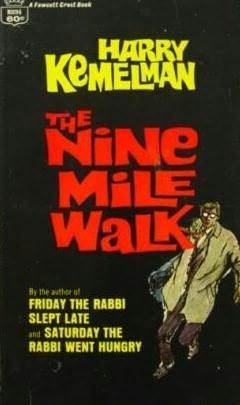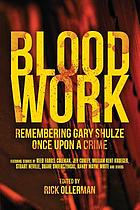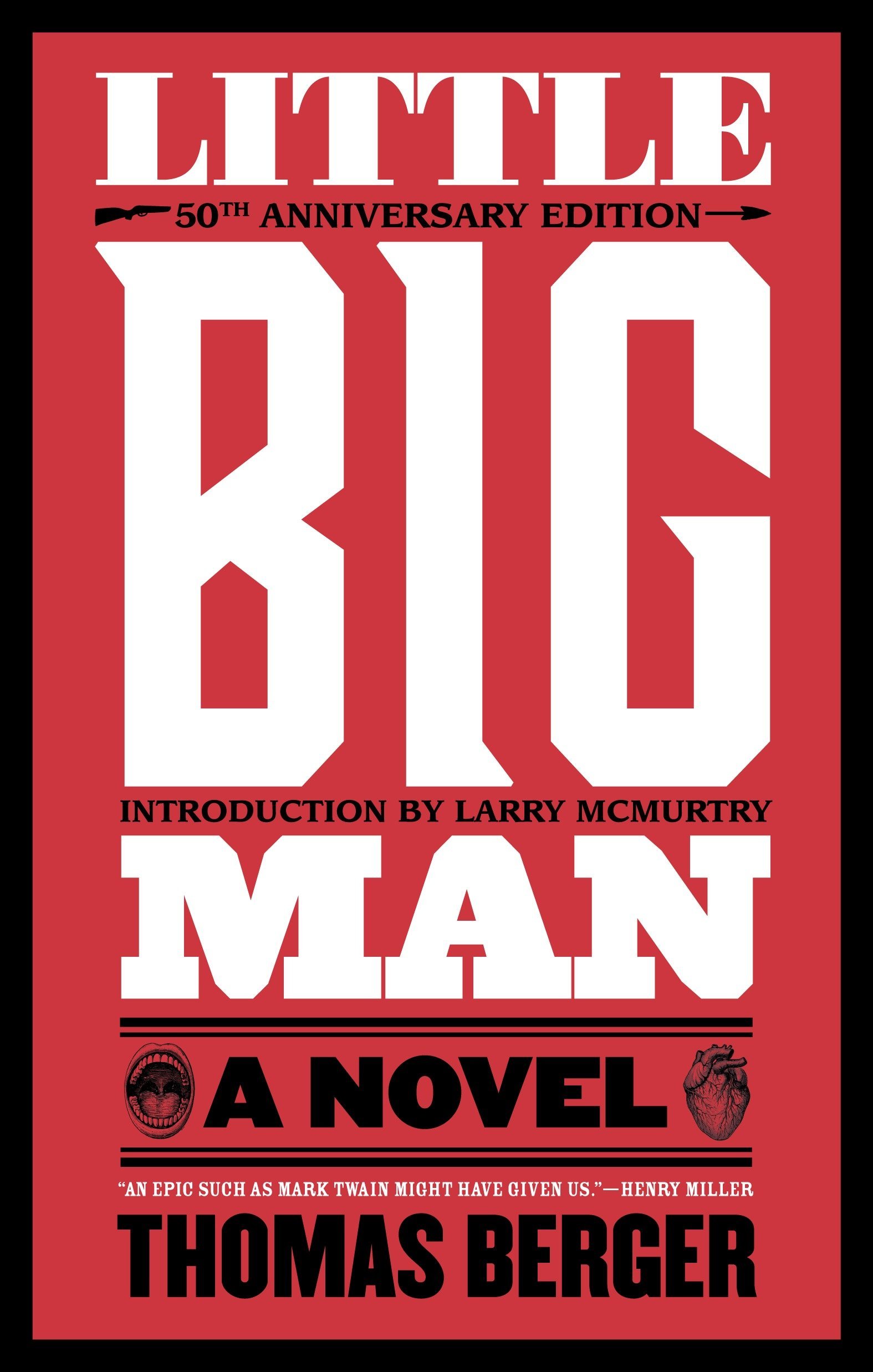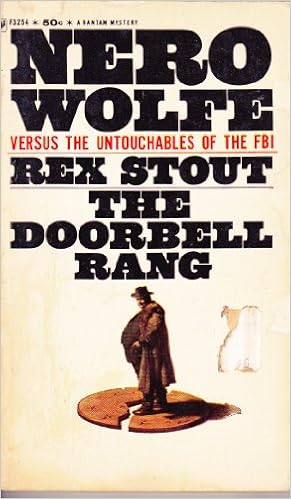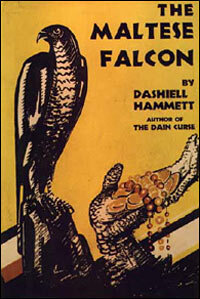 |
| Approximately 1979 |
After three years of submitting to various markets I sold a story to the late, and not particularly lamented, Mike Shayne Mystery Magazine. I learned this fact when an envelope arrived in the mail with a check for $30 and a slip of paper with the title of my story on it. No contract, no letter of acceptance.
To say I was pleased would be a distinct understatement.
I was not the only person affected by the tale. My wife brought a copy into the office where she worked and the next time I visited her co-worker Dorothy glared at me and asked "What happened afterwards?" I assured her that I had no idea. I got so tired of her asking every time she saw me that I finally told her that the day after the story ended the main character won the lottery and lived happily ever after. Oddly enough, this did not satisfy her.
By the way, the story was inspired by the title, which popped into my head one day. Where that came from is anybody's guess.
I just reread the story and can honestly say that in the forty years that followed I have been paid more for worse. So, just in case your complete set of MSMM's is in storage, I am reprinting it here. I have changed nothing, although it was physically painful to leave that horrible adverb: "suddenly." Ick.
I hope you enjoy the other words. And thanks to Leigh for catching a few typos.
 THE LONG TREASON
THE LONG TREASONby Robert Lopresti
The old man had lived on the hill beyond the village for as long as Pablo could remember. When Pablo was learning to walk he had seen the foreigner, already old, walking alone through the jungle. Three years before, the old man had stood outside of his shack, watching when the soldiers came to take off anyone old enough to carry a gun.
Pablo's brother, Felipe, had been sixteen and had cried as they led him off to fight some war for El Presidente. He hadn't returned. Pablo's father died two years later, and at the age of twelve Pablo had become the man of the family.
To help his mother feed the younger children, Pablo went to work for the old man. In that South american country it was widely believed that all foreigners were rich, except the missionaries. The old man was a foreigner, but he was neither rich nor religious.
The work was easy: odd jobs and chores, repairs to keep the old shack livable. The old man was too weak to do them himself. He didn't pay Pablo much, but who else in the village could afford to pay him at all, still too young to do a man's work? The job would keep Pablo's family alive till he grew up.
Pablo was running an errand for the old man when he first heard about the visitor. The visitor was a foreigner who drove up into the hills in a rented car, dressing too warmly, bribing too richly. Most foreigners, especially wealthy ones, would have been robbed and killed on their first night out of the city. However, there was something about this man that made even the hungriest ladrones put their knives away and keep their distance.
On his third day in the mountains he reached Pablo's village. That night, while they made stew for the old man's dinner, Pablo told the old man about the stranger who was asking questions. The old man just shrugged and went on cutting carrots.
When the stew was ready, the old man invited the boy to join him, as he often did. He always accepted, because it meant one less meal his mother had to stretch out of their meager food supply.
Although they ate in silence, neither of them heard the approaching footsteps. Suddenly the door burst open, almost torn off the hinges by a powerful kick. The visitor walked in, holding a pistol.
Pablo had jumped up, ready to run, but the old man touched his shoulder and gestured for him to sit down again. The old man had shown no other reaction to the stranger's sudden entrance.
The visitor spoke a name which Pablo had never heard before. The old man nodded. "So you have found me at last. It's good to see you again. You have grown older."
The visitor glanced quickly around the one-room shack before closing the door and approaching the small table. He was about fifteen years younger than the old man, just leaving middle age. His voice was so gentle that it surprised the boy.
"You have gotten older, too. I can hardly believe that you are still alive." They spoke in their own language, but Pablo had been exposed to many languages, and could follow most of what they said in that one.
The old man gestured, like a host to a guest. "Sit down and talk for a while."
The visitor's lips compressed into a thin line. "You know why I am here."
The old man shrugged and for the first time in several minutes he noticed Pablo. "Let the boy go."
The stranger's eyes ran over him and the boy shivered. "Go where? To tell who?"
"He'll go home to bed, and tell no one. Don't worry, old friend; there's no one here who would rush to my rescue."
The visitor's lips turned up in a tiny smile. "That doesn't sound like my old teacher. Do you really care what happens to the boy?"
The old man got angry. "I don't care about him, or anyone else. And no here cares whether I live or die. I've made sure of that. But why does the boy have to see it?"
The foreigner looked hard at Pablo. "Will you go straight home, and say nothing to anyone?"
Pablo nodded. "All right. Go."
The boy ran out. Once outside, he stopped and looked in all directions. Then he crept around the outside of the shack. At the rear was a spot where the wall was so low that by standing on a barrel he could climb silently onto the roof. He had tried once to do some thatching up there for the old man, but the roof was in such bad shape that the patchwork was useless.
He crawled up slowly. Some spots were so rotten that he almost fell through. The rain must have poured through the cracks, but the old man never complained about it. He seldom complained about anything.
Finally he reached the center of the roof. Peering through a crack he saw both men, directly beneath him, seated at the table.
Straining, he could her the old man speaking. "...so many years I thought that I had been forgotten. I'm almost glad to see you."
"Many others have looked for you. Am I really the first to succeed?"
"Oh, there were others, years ago. I suppose the trail has become colder with time, and it takes someone with your persistance to follow it now."
"Where are those early searchers now? Buried in the jungle beyond the village?"
Pablo saw the old man's face twist into a smile, or perhaps it was just a baring of teeth.
"This is a dangerous part of the world, old friend. Death comes suddenly here."
The visitor gestured with his gun. "I do not intend to die in this hellhole of a country."
"Suit yourself. It's good enough for me. I'm not as particular about things as I once was."
"I have some questions I'd like to ask you."
"Feel free. If you become tedious, I'll stop answering and you'll shoot me. So ask away."
"We know that your new friends lost track of you, and that they are angry with you. Why?"
"After I changed sides I lived in my new country for three months. I saw nothing but the inside of two bare rooms and did nothing except tell their top spies about our top spies. After three months I decided it was time to leave."
"Because of the accommodations."
"Not that. I wanted to leave before they discovered that they had paid me for false information."
The visitor stiffened. "False? You mean you didn't betray us?"
"I changed sides for money. Isn't that betrayal enough? I simply chose not to give them the information they wanted, so I had to get away before they found out."
The visitor scratched his head with the hand that didn't hold the gun. "If we could be sure that that was true, that the secrets you held are still secret--"
"It would change a lot of plans, perhaps a national policy or two. Agents you thought were known would be usable. Codes, programs, and operations that were cancelled when I left could be dusted off."
"But--"
"But you can't be sure, can you? I might be lying to you. Once a traitor, always a traitor. I taught you that."
The visitor nodded. "But it would be just lie you to sell out and then double-cross the buyers. After you left we tracked down all the little betrayals you made along the way to the big one. Have you always had a price?"
The old man smiled and said nothing.
"It was very interesting, you know, this hunt for my old teacher. All the time I wondered whether natural causes had already finished you off. Or someone from the other side. You know there are several countries that put a bounty on you, alive or dead?"
"Who are you working for, by the way?"
Pablo watched the visitor's face go white. "You know who I work for. Just because you're for sale doesn't mean that everyone is."
"A patriot, are you? You don't sound like a student of mine."
"But I am -- they never let me forget that. Do you know what your selling out cost those of us you trained? A black mark on our records forever. Every time our name comes up for assignment or promotion, they remember our teacher and feel a touch of suspicion. When you betrayed your country you betrayed each of us."
"When I had influence you were willing to ride on my coattails. You should know by now that there are free rides are always expensive in the end."
The visitor was trembling with fury. "It wasn't like that. You know it wasn't."
The old man sat in silence for a moment. "Is this interrogation over?"
"One more question. You mist have been noticed around here, as a foreign on the run. How come the beloved Presidente of this country didn't turn you in? It would be just like him."
"The fool thinks that I'm a Nazi. There's a lot of them down here and they've poured gold into his Swiss bank. So, accidentally, I fall under their protection."
"In that case, why aren't the Israelis hunting you?"
"They were. When they found me I convinced them of the obvious fact that I wasn't a Nazi, and won their silence about who I really was."
"How?"
"I sold them the location of a few real Nazis/"
The visitor shook his head "You sell them out while their bribes are protecting you. You really are amazing. I think that betrayal is compulsive with you. It comes as naturally to you was breathing."
Pablo had never seen the old man look so ancent. "Breathing isn't as natural as you might think. Sometimes I have to force myself to take the next breath."
"Look at me, teacher. Look at me! I s there one thing which you have not betrayed?"
The old man struggled to his feet. "I have always been loyal to my own interest."
The visitor's laugh was cracked and angry. Pablo hadn't realized how tense the visitor really was.
"Your own interest? Look at you! Dressed in rags, waiting in the jungle to be hunted down and killed, living in this hole with no one who cares enough about you to bury you when you die. You've done very well for yourself."
The old man leaned against a wall, trying to stand straight. The foreigner got to his feet.
The old man spoke, and his voice was cold and hollow. "Do what you came to do."
"You betrayed us all." The foreigner raised his gun. Remember that."
As fast as a jungle snake, Pablo turned over and hit the weakest spot on the roof. The wood gave, then cracked, and he fell through with a crash. The wood didn't hit the visitor, but as he darted aside in confusion he lost his balance. As he fell to the ground he fired one shot. When Pablo was able to get up he found the visitor lying unconscious, and the old man bleeding from a bullet hole in his leg.
****
The old man groaned as Pablo tightened the rags around his leg. The wound had started bleeding again while they were burying the visitor. The body was deep in the jungle with its neck broke, all identification and money taken. When someone came looking for him they would assume that he had been killed by robbers.
Pablo had been surprised at how easily the old man had recovered once there was a specific job that needed doing. He had tied up his leg, and then killed the unconscious man, showing none of the exhaustion that had weighed him down a few minutes before.
But now that the work was done he lay on his cot in the shack and moaned. "I'm going to die." He tried to sit up and the effort sent tears down his cheeks.
Pablo pushed him back with an gentle hand on the shoulder. "You will not die, old man."
The old man looked at him, and finally asked the question that had hung between them for hours. "Why did you do all this? You mist have heard what he said about me. What makes you think that I'm worth saving?"
Pablo smiled. "I will take care of you. You will get well."
The old man closed his eyes. For hours he lay there he lay there trembling, and Pablo never left his side. At one point, late in the night he began muttering: "Loyalty... a second chance... loyalty."
Three years, thought Pablo. He must live for three more years. Then I will be sixteen, old enough to be taken by the army, like my brother Felipe. Old enough to be treated like a man. I will go to the city then and sell the old man to the highest bidder, and Mama and the children will never be hungry again.
"You will not die, old man," he said softly.














